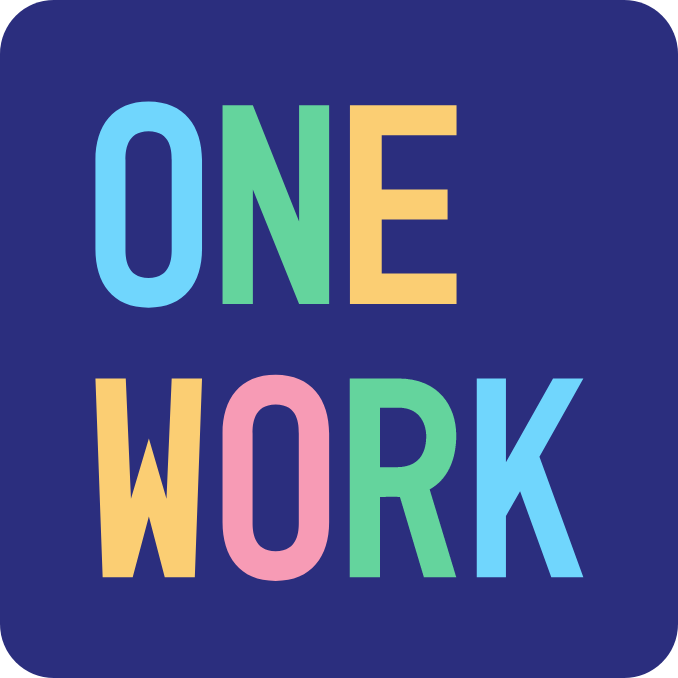Impactfully No. 89: Résumé Rejection
Researchers submitted 80,000 resumes to 10,000 job opportunities over a three-year period, helping highlight discrimination – and the lack thereof – at 100 of the largest companies in the U.S.

I have a decidedly job-centric story to share this week that puts data to a phenomenon you may have experienced in your own search – hiring discrimination. People don't usually know if they were discriminated against when applying for a job, but now we have an idea of what hiring practices are like 100 of the biggest companies in the U.S.
Our job of the week has social impact written all over it, and even better, it's at a clean water pioneer that's helping eradicate water-borne diseases. More on that opportunity below!
~ Greg
What we're reading
Researchers published the names of 100 companies used in the largest audit study in the U.S. which studied discrimination in hiring practices. Unsurprisingly – but no less disappointing – they found that some companies showed systemic discrimination in their hiring practices. (NYT)
- I love the scale at which this research was conducted: 80,000 resumes submitted to 10,000 jobs over three years. This also covered the period when DEI was gaining a foothold in many of these companies, so you'd think these would be skewed in a positive direction.
- Honestly, some of that was the case – one of the cool things about this study is that it highlights what companies are doing well, not just the ones that aren't.
- One key takeaway is that companies with a centralized HR function tend to have less discrimination. Essentially, when companies standardize their hiring processes and include peer review, decisions are less likely to be biased.
- They looked at the impact of discrimination on women and men as well. Turns out the difference is limited for early career roles, but women are more likely to be discriminated against later in their careers. The data also showed that gender roles are having an impact, with men more likely to get manufacturing jobs and women more likely to get apparel jobs.
- This one is worth a read, especially if you fall into an underrepresented group – you can see what you're up against and which companies have a more equitable hiring process.
A recent NYT article examines the impacts on a German town after Volkswagen started exclusively producing electric vehicles at one of its plants. (NYT)
- The first thing that stood out to me was how the major stakeholders – the company, local officials, and surrounding businesses – prepared the town in advance for the transition. For example, they expanded the local training institute to cover electric vehicle technology, so workers could learn more about it. They also let employees borrow the electric vehicles for a few days – arguably the best way to sell someone on the technology.
- I was also surprised by how the economy adapted. Instead of losing jobs, the jobs were replaced – companies that supplied parts for internal combustion engines started producing different parts, workers had job mobility between companies because their skills were transferable.
- A few issues ago, we talked about how the EPA was setting new rules to influence EV sales. Turns out there are similar incentives – and pushback – over in Germany.
- Of course, a comparison to Detroit doesn't make this German city Detroit – or any of the other U.S. cities reliant on auto manufacturing. If anything, it offers a blueprint for what went well and what didn't go well so other cities can adapt accordingly.
Job of the week
Clean water is a big deal (as you'll see in this week's stories), and one of the biggest names in the space is LifeStraw. They got their start with a drinking straw that purifies water as you sip through it – really innovative stuff. They're hiring for a number of roles currently, including a Social Impact & Sustainability Manager. Sounds like our kind of opportunity, huh?
This is a soup to nuts role for making a difference: you'll do everything from building partnerships and setting sustainability goals to overseeing volunteer opportunities and building communications strategies to highlight the company's efforts. Lots of variety, major impact – this is a job of the week that lives up to the name.
Community roundup
- Remember a while back when kids in Montana sued the state over climate change impacts? I'm getting déjà vu, because a European court has ruled that Switzerland has violated its citizens' human rights because it's not doing enough to combat climate change. (NYT)
- Columbia is experiencing a major drought, and now water is being rationed. People are assigned to a zone, and the water shuts off for 24 hours on a 10-day rotation. (CNN)
- I'm reminded of the Colorado River discussions in the southwestern United States. If the states can't come to a reasonable agreement, and if cities continue to grow their water usage, I question whether we're on track for similar arrangements in the future.
- The EPA has finalized the first PFAS limits on drinking water in the U.S. PFAS are so-called "forever chemicals" because they take so long to leave the body once ingested – see the related trivia question below. (Grist)
- Harvard is bringing back standardized testing, following the example set by other elite universities. They cite cases where standardized testing would have helped underrepresented applicants, however, test scores are correlated with wealth. (Axios)
- More EPA news – they've been busy – this time on lightbulbs. They have nearly tripled the standard for energy efficiency for lightbulbs, and all products sold or imported must meet the new standard by 2028. To put it in perspective, that means a 60-watt equivalent bulb will require roughly 10% as many watts as before. (Grist)
- Out of curiosity, I checked on whether LED bulbs would meet the standard, and it seems like they're in the neighborhood. I do get the feeling that we're headed for even more innovation on this front in order to hit the EPA's targets.
Hot job opportunities
- B Corp Consultant – Cultivating Capital – Remote
- Jr. IT Specialist – Fireclay Tile – Aromas, CA
- Sustainability Analyst – Kohler – Remote
- Account Manager – Milepost – Remote
- Senior DevOps Developer – Capital Rx – Remote
- Manager, People Experience – Sol de Janeiro – New York, NY
- Senior Software Engineer (Product) – Maven – Remote
- Sustainability Intern – O’Neill Vintners & Distillers – Paso Robles, CA
- Principal Product Manager – Omnidian – Remote
- National Account Manager, Beer/Wine/Spirits + Hospitality – MiiR – Seattle, WA or Boise, ID
Hiring for mission-driven talent? Post a job for free on our job board.
Looking for a job? Submit your resume to our talent pool, and let social impact companies come to you.
Resource of the week
A few issues back, I pointed you to ENERGY STAR as a good resource for finding rebates and tax credits for home improvements that help reduce your energy costs. This week, I wanted to share some guidance on electric vehicle rebates since they've changed this year, and only a limited number of hybrid and electric vehicles qualify.
NerdWallet has a great summary of what to expect when pursuing an EV tax credit on their website, including a list of which vehicles come with a credit. This year, you can transfer the tax credit to an eligible dealership. This might sound odd, but the intent is for the dealership to pass that credit on to you in the form of a lower price up front, essentially helping you benefit from the tax credit immediately instead of waiting for next year's tax return.
Test your knowledge
Last week, I asked you about Chefs for Ukraine, one of the programs offered by World Central Kitchen. To date, they've delivered over 260 million meals. It's an impressive amount, though I'm hopeful it won't increase much beyond that – the people deserve better than a war of attrition.
As I noted above, the EPA is on a roll lately with new rules to help protect people and the planet. With their recent ruling on "forever chemicals" like PFAS, it made me wonder: how long is forever?
This is a bit complicated to figure out, because as you can imagine, it depends on which chemical we're talking about. Instead, I'll narrow the focus and point you to a Business Insider article discussing the half-life of various chemicals including multiple types of PFAS. What is the minimum half-life for the PFAS listed in the article?
If you're not familiar with the term, half-life is how long it takes your body to expel half of the chemical. You may have heard of it in the context of radioactive decay – a sobering comparison when you consider that all have PFAS in our bodies (and they're not going away anytime soon).
Email me your guess, and I'll send one lucky winner a couple of One Work stickers!
I am reading this story in the NYT about a journalist who took a cross-country trip by train to save on emissions and inadvertently increased them. It's a fascinating discussion of transportation methods and which are more efficient under certain circumstances. You can find me on LinkedIn and Threads.
